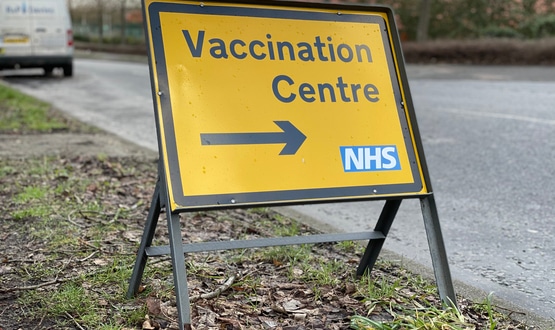Another view: Neil Paul
- 18 September 2012

This week my practice got its notice that we need to change over to NHSmail. Our ICT department has long run its own Exchange server for internal use and for practices connected to its network – and is trying to get rid of it as a cost saving.
Lots of our practices have their own mail servers, and they are also being moved as supporting and paying for these makes no sense. I don’t have any problem with any of this, except that NHSmail is a nightmare.
The over quota message of death
Ok. In reality, for most staff, it isn’t an issue. My admin staff and finance team don’t really care which email address or system they use; although it looks as though we will lose nice email addresses – such as practice.manager@sandbachgps.nhs.uk – and gain ‘lifelong’ accounts – such as the unguessable sue.smith234@nhs.uk.
However, for some people, it will be an issue; and I hear so many bad stories from people for whom it does matter.
For example, my good friend and surgery partner happens to be chair of our clinical commissioning group, and he seems to get blocked out of NHSmail on a weekly basis.
Whether this is a laptop set-up issue, a local wi-fi issue, the mobile device he uses, or a personal vendetta against him by the god of IT isn’t clear.
I get a lot of emails – up to a hundred in a day – but he easily beats me. He had one of the IT technicians clear out his account last Monday and help him archive a load of stuff to a shared drive. By Thursday he was over his quota again, just on emails sent to him with attachments.
He is meant to be leading our CCG, reorganising the local health economy and he spends most of his life either deleting emails that he should read or out of contact because NHSmail won’t allow him to send email while he is over his quota. It’s crazy; but perhaps there is hope?
NHSmail 2 is coming
I happened to be on the NHSmail website the other day. Access to NHSmail was down and I was trying to find out if it was a local or national issue.
While I was doing this, I came across the amazing statement that NHS Connecting for Health is investigating the next generation of NHSmail. Apparently it is up for renewal and they are undergoing a “no idea is too crazy” review of alternatives.
Now, I welcome this, even though I am not sure I believe it. This is the first I have heard of this review and, rather bizarrely, there appears to be no mention of a public consultation exercise or asking interested parties or users what they would like to do.
In fact, there is very little information about specifications, alternatives, user wishes, and so forth. Even so, I’d love to be involved as I think NHSmail can be improved massively.
First, we need to stop thinking of it as an email-only service; for which there is a precedent, as it already does fax and SMS.
For me, the next version has to link to an instant messaging system that allows people to set their availability status. I have numerous email conversations in real time that would be better if they were conducted by instant message – particularly as this would remove a lot of inane emails from my inbox.
As a member of our CCG, I get rung, texted and emailed all day every day, often while I am in consultations, even though I only work for the organisation two sessions a week. If people could check my availability, that would be great. I don’t mind answering if free or quiet.
The ability to change from text to voice quickly would also be good – sometimes its easier to talk than text, but I don’t remember everyone’s mobile or desk phone number and lots of people work remotely.
My PC has a microphone and speakers – I use voice dictation for letters – so let me press a button saying “can’t we just talk?”
Many ideas for improvements
Next, add in a screen sharing function. I’m often emailed a spreadsheet or a presentation or a document for my comment.
In most cases, it would be much easier for the owner to show me (or a group of people) the document on their screen, while I watch and we speak about it. I’m not bothered about being able to control their PC – just to watch the PowerPoint presentation on it.
To save space, we also need to deal with attachments better. Strip them out and hold them somewhere centrally, so 100 copies of a document don’t clog inboxes.
Then, we need proper, easy to use mailing list management. I’m still copied into loads of emails that come to me because of previous CCG and PCT jobs.
For instance, I get a lot of minutes and agendas of meetings that I’m no longer interested in. Yet I’m not always copied into emails that I do want to see. I should be able to manage which mailing lists I want to be on.
Introducing paid-for, two-way text messaging may generate some income. Currently, if you want two-way texting you have to pay a third party for it. The NHS should consider a freemium model, in which the basics are free but more advanced users (or their organisations) pay.
Getting better about access and security
We also need to think carefully about delegation and security, particularly as more clinicians get involved in management.
Once again, let me talk about my partner the CCG chair. He is roughly half-time as a partner at my surgery and half-time as CCG chair. He wants his personal assistant at the CCG to have access to his inbox to help him deal with routine CCG emails.
But my practice uses email for confidential and commercial messages about our business and, indeed, our patients; should she have access to these – especially as she happens to be one of our patients?
What about the opposite? There is a move to allow patients to email us directly, although personally I prefer secure communication routes like EMIS Access.
I know of at least one practice locally that publicises its email addresses. Now, due to holidays, part-time working and the risk of missing something important, they allow their admin staff to access their inboxes to read these.
But, again, this prevents them from using email as a means of communicating their practice’s business. Do we all need more than one account, or better ways or splitting our work?
I would like to allow one of the CCG secretaries access to my diary; but only for the days I work for the CCG. I don’t want her seeing what I do the rest of the time and I don’t want her accidentally deleting or changing or adding to it.
It seems to me that not enough thought has gone into the security and confidentiality of this type of access, particularly where competing business and patient confidentially issues are involved.
Do we want all of this decided for us behind closed doors? Shouldn’t CfH or whoever is taking over be asking us for our views, as it prepares for NHSmail 2?
About the author: Dr Neil Paul is a full time partner at Sandbach GPs, a large (21,000 patient) practice in a semi rural Cheshire. He is one of five executive GPs for NHS South Cheshire CCG and has a mixed portfolio that includes IT.
He was previously on the PEC of NHS Central and East Cheshire. He also writes iPhone software, runs a primary care clinical trials unit and is involved in several exciting IT projects.



